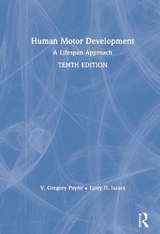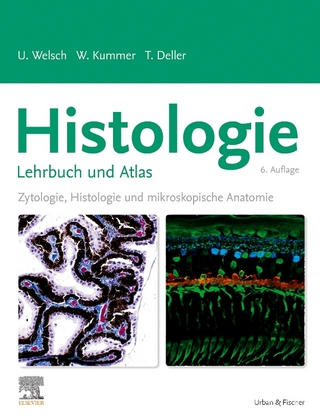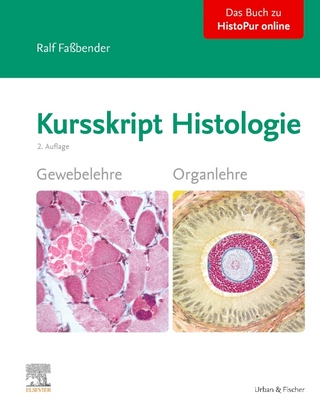
Human Motor Development
Routledge (Verlag)
978-0-415-79004-8 (ISBN)
- Titel erscheint in neuer Auflage
- Artikel merken
In this ninth edition, the authors have expanded coverage of motor development of adults and older adults while continuing to emphasize the all-important child and adolescent time periods. They have also incorporated current research throughout to support key discussions. Students will appreciate the book's readability, affordability, logical organization, and visually appealing layout; instructors will appreciate that its new length is more appropriate for a semester-long class.
V. Gregory Payne is a Professor in the Department of Kinesiology at San Jose State University. He formerly served as the Associate Dean for Research in the College of Applied Sciences and Arts and as Chair of the Department of Kinesiology. Payne is a specialist in human motor development, with interests ranging from aging and physical activity to children's sports and fitness. He received a B.S. degree from Western Illinois University and later received that institution's Distinguished Alumni Award. He earned an M.A. from the University of Iowa and his PED from Indiana University. Payne worked for the Venezuelan Ministry of Education as a Peace Corps Volunteer in Venezuela following his undergraduate work. As a human motor development researcher and educator, Payne has produced more than 150 publications, including numerous refereed articles and 18 editions of five books, and has made nearly 300 presentations throughout the world. He is a fellow of the National Academy of Kinesiology and was a member of the task force that developed the NASPE National Physical Education Standards. The many honors and awards Payne has received include the Distinguished Service Award from the California Governor's Council on Physical Fitness and Sports and the prestigious Research Quarterly for Exercise and Sport Research Writing Award for research involving children's physical activity and cardiovascular endurance. He has held offices in several organizations including President of NASPE and Chair of the Motor Development Academy. He is a Fellow of the Research Consortium of AAHPERD (SHAPE), has chaired two editorial boards, and has reviewed for many journals Larry D. Isaacs is Professor Emeritus and former Director of the Exercise Physiology Program, Department of Biological Sciences, College of Science and Mathematics at Wright State University. Isaacs received both his B.S. and M.S. degrees from Virginia Commonwealth University, where he specialized in human motor development and also developed a strong interest in both human physiology and exercise physiology. Following four years of public school teaching, Isaacs attended the University of Maryland and received his doctorate in 1979. He continues to serve as a reviewer for many scholarly journals. In addition, he has published numerous scholarly articles and has authored, coauthored, and contributed to 19 textbooks. He is certified with the American College of Sports Medicine (Certified Exercise Physiologist) and was awarded Research Fellow status by AAHPERD/SHAPE. In addition, he has received the Wright State University Presidential Recognition award for research. More recently he accepted a position on the NASE (National Association of Speed and Explosion) Editorial Review Board. Isaacs continues to work part-time as a clinical exercise physiologist at Hilton Head Hospital, Hilton Head Island, South Carolina, where he works with both cardiac and pulmonary patients
Part 1: An Overview of Development
1. Introduction to Motor Development
2. Cognitive and Motor Development
3. Social and Motor Development
Part 2: Factors That Affect Development
4. Prenatal Development Factors
5. Effects of Early Stimulation and Deprivation
Part 3: Physical Changes Across the Lifespan
6. Growth and Maturation
7. Physiological Changes: Health-Related Physical Fitness
8. Movement and the Changing Senses
Part 4: Movement Across the Lifespan
9. Infant Reflexes and Stereotypies
10. Voluntary Movements of Infancy
11. Fine Motor Development
12. Fundamental Locomotion Skills of Childhood
13. Fundamental Object-Control Skills of Childhood
14. Youth Sports
15. Movement in Adulthood
Part 5: Assessing Motor Development
16. Assessment
| Erscheinungsdatum | 01.04.2017 |
|---|---|
| Verlagsort | London |
| Sprache | englisch |
| Themenwelt | Sachbuch/Ratgeber ► Sport |
| Geisteswissenschaften ► Psychologie ► Biopsychologie / Neurowissenschaften | |
| Geisteswissenschaften ► Psychologie ► Entwicklungspsychologie | |
| Studium ► 1. Studienabschnitt (Vorklinik) ► Histologie / Embryologie | |
| Studium ► 1. Studienabschnitt (Vorklinik) ► Physiologie | |
| ISBN-10 | 0-415-79004-2 / 0415790042 |
| ISBN-13 | 978-0-415-79004-8 / 9780415790048 |
| Zustand | Neuware |
| Haben Sie eine Frage zum Produkt? |
aus dem Bereich



